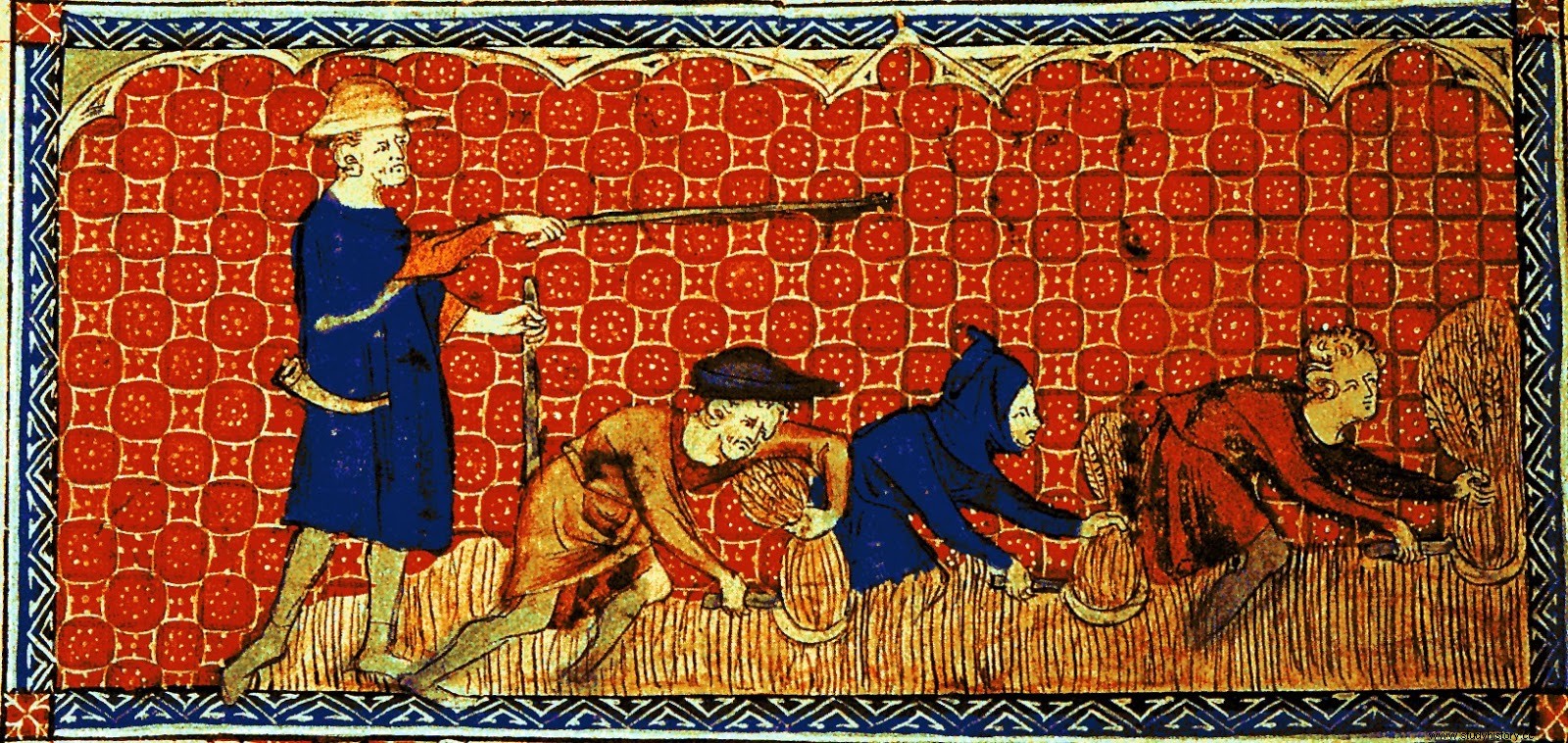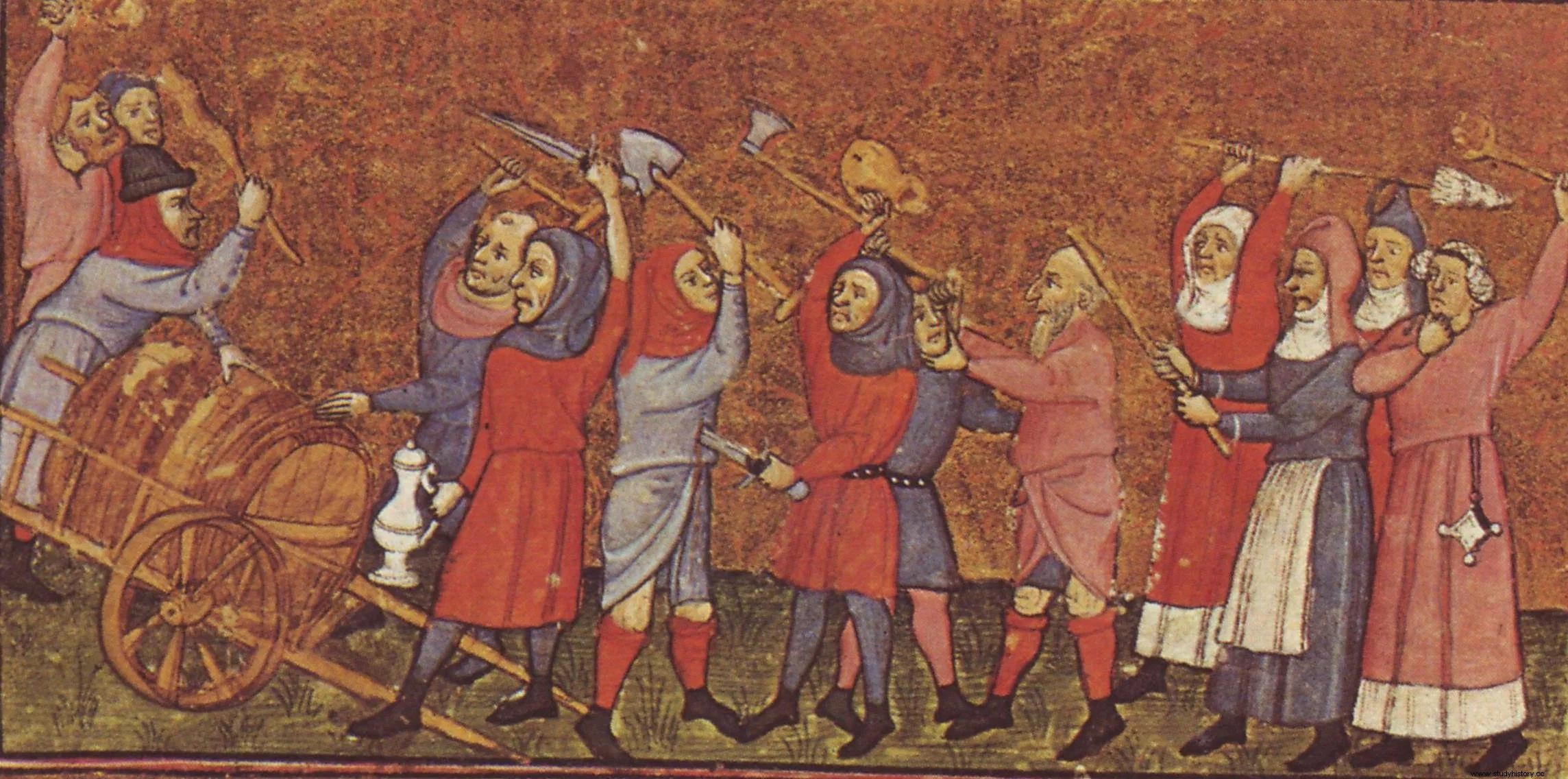We are talking about the confrontation between Busca and Biga. And although it could well be the title of a cartoon series, in the «Itchy and Scratchy style » from the Simpsons or the classic «Tom and Jerry «, they have nothing to do with the cute animated characters. Search (in Catalan, splinter) and Biga (in Catalan, beam) were two Catalan political groups from the 15th century.
The Biga was made up of the group of oligarchs who ruled the cities and the landowners who lived off the rents. In the midst of the economic crisis of the fifteenth century, merchants and artisans came together to fight for their interests and created the Search. This group championed the devaluation of the currency to be more competitive, establish a protectionist policy for local production and impose taxes on imports, and democratize power, until then in the hands of a select few. And the only way to implement those measures was to access local power. Under the reign of Alfonso V of Aragón «the Magnanimous» , both the monarchy and the Busca had a common enemy:the urban oligarchy represented by the Biga. This oligarchy opposed both the claims of the monarchy and the reformist policy of the buscaires . To weaken the local oligarchy, the king supported the Busca and, in this way, they were able to accede to the government of Barcelona in 1453 and undertake the persecuted reforms. But the Biga continued to control key institutions such as the Cortes or the Generalitat and, in addition, received the support of the nobility and the Church, since all of them saw their privileges and, above all, their income in danger.

Parallel to this political conflict, discontent grew between the Catalan peasants (payeses) and the feudal lords (nobles) due to the so-called «bad uses » (abusive rights of the lord over the serf), especially because of the so-called remensa . Payeses were considered to be linked to the land they worked and, therefore, could be sold or inherited with it, and the only way to free themselves was by assuming the payment of a ransom (remensa). As happened with the Search, the peasants also found an ally in the figure of the king. I would like to think that in addition to the personal interests of the crown to limit the power of the feudal lords, the king also took into account that of "liberating the oppressed" (very much like a Middle Ages movie). After several meetings with each other, the others with those from beyond... in 1454, while the king ruled from Naples, he appointed his brother John II lieutenant of Catalonia. , in favor of supporting the peasants. With the recommendations of his brother, in 1455 Alfonso V published a decree suspending misuse. But as it is well known that joy is short-lived in the house of the poor, the pressure of the lords forced the king to "suspense the suspension". In fact, when Juan II is appointed King of Aragon, after the death of Alfonso V in 1458, he inherits the throne and the conflict. There were too many years of tension, of unfulfilled promises, walking on a razor's edge... until the Catalan civil war broke out in 1462. , an armed confrontation generated by a political conflict (Busca vs. Biga) and a social one (peasants vs. feudal lords). Monarchy, buscaires and peasants against the oligarchs, nobles and the clergy. Each one with its own interests:the Crown, limiting the power of the oligarchy and the nobles; the buscaires , maintain power and continue with the reforms; the peasants, to prohibit "bad uses" and easements; oligarchs, nobles, and clergy, protect their privileges, and reclaim local power lost to the Quest.

After 10 years of struggle, even with foreign intervention, peace was signed at the capitulation of Pedralbes. Although in theory the oligarchs were defeated, the consequences were not very traumatic for them. In fact, the Biga recovered local power. And the poor peasants, even being on the side of the theoretical winner, would still have to continue claiming and even fighting for their rights until the Arbitral Sentence of Guadalupe issued in 1486 by the King of Aragon Fernando II
